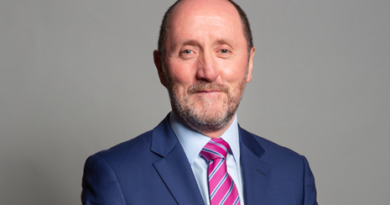Roger Moate – 1986 Speech on Seatbelts
Below is the text of the speech made by Roger Moate, the then Conservative MP for Faversham, in the House of Commons on 13 January 1986.
Like the hon. Member for Wigan (Mr. Stott) I feel a sense of pride at having taken some small part in the legislation which we enacted some years ago. It was not achieved without a great deal of battling over many years. That is why many of us feel a great deal of pleasure at, in the words of my hon. Friend the Under-Secretary when he introduced the measure, the public’s wholehearted and instant acceptance of the measure. In that we do not include my hon. and learned Friend the Member for Burton (Mr. Lawrence), but that would have been rather too much to hope for.
One of the most striking things has been, despite all the prognostications of the opponents, that the public have accepted the measure as a commonsense one that contributes greatly to road safety. That is in stark contrast to their forecasts at the time.
It has been suggested that my hon. and learned Friend made the same speech that he made several years ago. That was not a fair accusation because he has completely shifted the grounds of his argument. It is significant to recall the forecasts made by the opponents of the measure. First, they forecast that it would be unenforceable by the police. That was a common cry. In fact there have been a dramatic increase to about 95 per cent. in the public wearing of seat belts. I am sure that my hon. and learned Friend is big enough to admit that there have been no problems over enforceability. We were told that there would be massive resentment by the public against this measure which would cause animosity towards the police. That, again, has not happened.
My hon. and learned Friend significantly admitted that fewer people might be hurled through windscreens and that there would be fewer front seat deaths. The measures opponents were denying that some years ago. That was the point of their argument. They said that that would not happen. I am sure we can at least agree that there has been a significant reduction in front-seat passenger deaths. That is important proof of the sense of the legislation.
I find extraordinary the ground onto which the opponents have moved. In effect they are saying that this safety device is so effective that it makes people complacent and that therefore other deaths result. That is a strange argument and I hope that we do not try to apply it too often in the sphere of safety. If one carried the argument to absurd lengths, one might do away with brakes, because brakes make drivers more careless. If they had no brakes they would drive so much more carefully and fewer injuries would be inflicted on pedestrians and cyclists. We might do away with fire extinguishers because they make people careless about fires. My hon. and learned Friend is admitting that this safety device works so well and drivers are so confident of it that it increases their carelessness.
My hon. and learned Friend and my hon. Friend the Member for Keighley (Mr. Waller) started by admitting that there had been an inexplicable increase in rear-seat accidents, and deaths of and injuries to pedestrians, cyclists and motor cyclists, and cited that as evidence that the wearing of seat belts causes injury to others. That is absolute nonsense. The facts remain as shown by a range of inquiries, including an independent assessment that at least 200 lives a year have been saved. My hon. Friend and others say, “We heard a figure of 1,000 a year”. That is true, but my hon. and learned Friend will remember that, in those debates, many of us said that even if only 100 lives a year were saved, it must be worth doing.
My hon. and learned Friend’s arguments about civil liberties, which sound strange when applied to the rules of the road and are quite inapplicable in that area, subside into nothing when compared with a saving of life on the scale about which we are talking.
Mr. Lawrence
What assessment does my hon. Friend give to the success or otherwise of the drink-driving regulations?
Mr. Moate
My hon. and learned Friend must remember that we are talking about net figures, and about increases in some other figures that could equally be attributable in that way. The figures have been carefully analysed by independent assessors. My hon. and learned Friend will not accept them in a month of Sundays, but other independent assessors and a mass of evidence say that we have at least achieved that worthwhile and significant reduction in casualties on the road. After all these years, I should have thought that my hon. and learned Friend would start to see the sense of the argument. Even if he remains an almost lone and obstinate voice on this issue—[HON. MEMBERS: “He is not alone.”] I said “almost”.
The point is that the majority of the British public accepts this as common sense. If my hon. and learned Friend fears that the legislation causes more injuries to rear-seat passengers, I hope that he will follow the logic of his argument and accept compulsory restraints on rear-seat passengers to help to reduce casualties on the road. But even then, I fear that his phoney arguments about civil liberties in this instance will always be more important to him than reducing the carnage on our roads.


